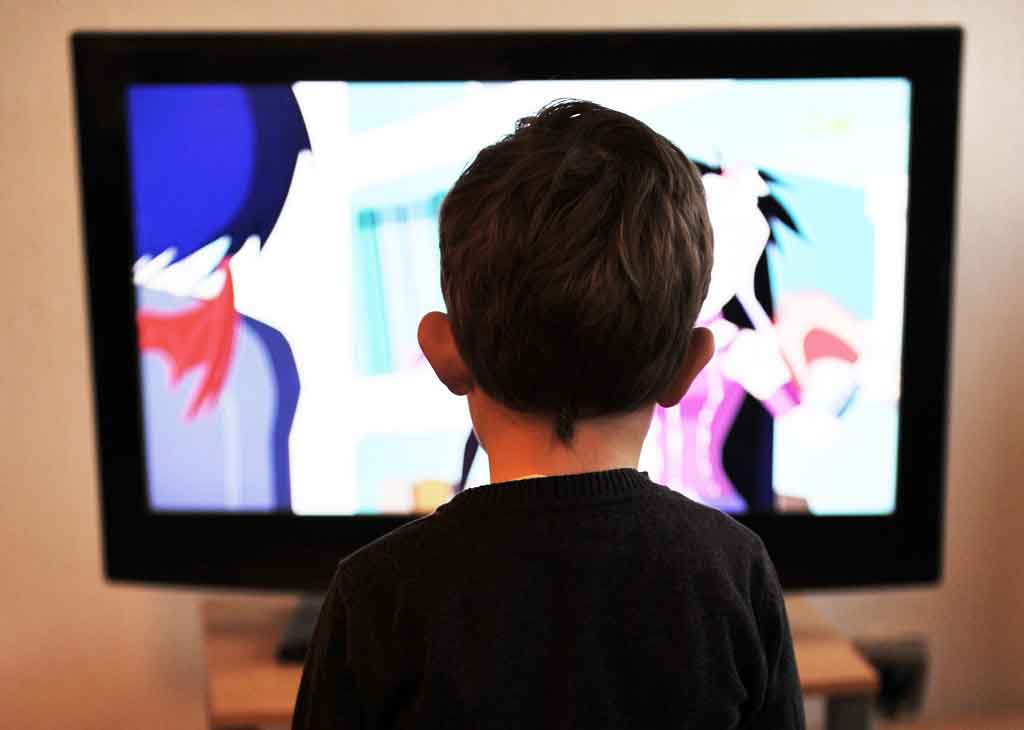Screen time may increase chances of attention problems in children aged 3 to 5
Pregnancy and child

"How just 2 hours' screen time a day as a toddler can make children more likely to 'be badly behaved or have ADHD' ...
"How just 2 hours' screen time a day as a toddler can make children more likely to 'be badly behaved or have ADHD'," the Mail Online reports.
Researchers in Canada looked at parents' reports of how much time their children spent using screens each day at age 3 and 5.
They compared screen time with scores on questionnaires the parents completed about their children's behaviour at age 5.
The researchers say children who used screens for more than 2 hours a day were more likely to have behavioural problems, mainly linked to poor attention, than those who used screens for 30 minutes or less.
But the differences were small. Though children with 2 hours screen time had a higher risk of clinically significant problems with attention, these were diagnosed in only 1.2% of the children included in the study.
Also, the study does not show that screen time directly caused the problems. For example, it could be that parents whose children had behavioural problems were more likely to allow them longer screen time.
Other lifestyle and environmental factors could also be linked with both longer screen time and behavioural problems.
The UK does not have guidelines on the amount of time children should use screens.
The Royal College of Paediatrics and Child Health said this year that families should decide the appropriate levels of use, while ensuring children got enough sleep and screen use did not interfere with family activities.
Where did the story come from?
The researchers who carried out the study were from the University of Alberta, McMaster University, the University of Manitoba, the University of Toronto and the University of British Columbia, all in Canada.
The study was funded by The Allergy Genes and Environment Network of Centres of Excellence, the Women's and Children's Health Research Unit, and the Canadian Institutes of Health Research.
It was published in the peer-reviewed journal PLOS One on an open access basis, making it free to read online.
The Mail Online gave a balanced view of the study and included criticism from UK experts, who said the study results were not strong enough to recommend limiting screen time.
inews and The Telegraph carried reasonable overviews of the study, but did not include criticisms or warnings that the results do not show that screen time is a cause of behaviour problems.
What kind of research was this?
This cohort study used data collected from the the Canadian Healthy Infant Longitudinal Development (CHILD) study.
Cohort studies can show links between factors, but they cannot show that 1 factor (in this case, screen time) directly causes another (behavioural problems). Other factors may be involved.
What did the research involve?
The CHILD study included 3,455 children and their mothers, recruited while the mothers were pregnant.
When the children were 3 and 5 years old, the parents completed questionnaires about how long their children spent using screens, sleeping and doing physical activity.
When they were 5 years old, the parents completed the pre-school Child Behaviour Checklist, a well-established questionnaire designed to identify emotional and behavioural problems, including ADHD.
The researchers used the information to see if screen time at either 3 or 5 years was linked to a higher chance of having behavioural problems at age 5.
They adjusted their figures to take account of sleep, physical activity, the family's socioeconomic status, the child's gender, ethnicity and maternal age.
They calculated how likely children were to have behavioural problems if they used screens for:
- half an hour or less each day
- half an hour to 2 hours each day
- more than 2 hours each day
Of the families enrolled in the study, only 70% filled in the behavioural questionnaire, so the results are based on 2,427 children.
What were the basic results?
Out of the 2,427 children in the study:
- 28 (1.2%) had behavioural scores indicating a clinically significant problem with attention
- 61 (2.5%) had behavioural scores indicating a clinically significant problem with depression or anxiety
- 317 children aged 5 (13%) used screens for more than 2 hours a day
- 1,415 children aged 3 (58%) used screens for less than 1 hour a day, the Canadian recommended limit
Compared with children exposed to less than 30 minutes screen time a day, those exposed to more than 2 hours:
- had a 2.2 point higher attention problem score
- were 5 times more likely to have scores indicating a clinically significant problem with attention (odds ratio [OR] 5, 95% confidence interval [CI] 1 to 25)
There was no link between screen time and scores indicating a problem with depression and anxiety.
The behavioural questionnaire included questions specific to attention deficit hyperactivity disorder (ADHD).
Researchers said 24 children (1%) met the threshold for ADHD-type symptoms based on their questionnaire scores.
They said children with more than 2 hours of screen time a day were more than 7 times more likely to meet ADHD criteria (OR 7.7, 95% CI 1.6 to 38.1) compared with children with 30 minutes or less screen time.
How did the researchers interpret the results?
The researchers said: "Our results suggest that physicians and educators promote limiting young children's screen time exposure in line with recommended guidelines."
Conclusion
It may seem like common sense to limit the amount of time children spend in front of the TV or using phones, tablets or other devices.
Children need physical activity, social interaction and plenty of sleep to grow up healthy.
But this study is not particularly persuasive.
The overall difference between children using screens for more than 2 hours or less than 30 minutes was tiny: only a 2.2 score difference in their attention problem scores.
Though the children using screens for more than 2 hours had a higher risk of clinically significant attention problems or significant ADHD symptoms, these problems only affected around 1% of the whole study sample. So these are very small numbers.
The study has other limitations.
It cannot prove screens caused the behavioural problems. Though the researchers have tried to adjust for confounding factors, environmental and lifestyle factors may still be linked with both screen time and risk of behavioural problems.
All the data is based on parents' reports, which are subjective, so we do not know how accurate their reports of screen time were.
The advice on managing screen time from the Royal College of Paediatrics and Child Health does not set time limits for different age groups because the authors say there's no evidence for that.
But it suggests parents ask these questions:
- Is screen time controlled?
- Does screen use interfere with what your family want to do?
- Does screen use interfere with sleep?
- Are you able to control snacking during screen time?
They say that if you're happy with your answers to these questions, you're likely to be managing children's screen time well.






 Subscribe
Subscribe Ask the doctor
Ask the doctor Rate this article
Rate this article Find products
Find products





